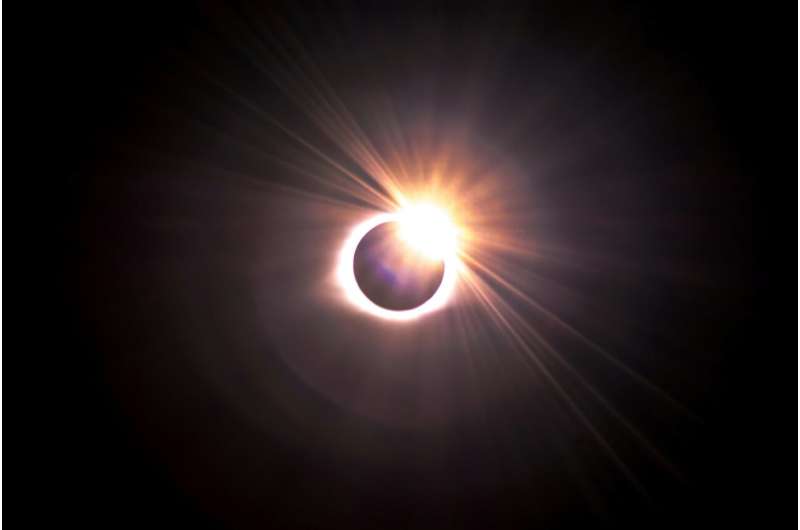This article has been reviewed according to Science X's editorial process and policies. Editors have highlighted the following attributes while ensuring the content's credibility:
fact-checked
trusted source
proofread
Upcoming solar eclipse: Ophthalmologists warn about dangers of looking directly at the sun

Do not look directly at the sun during the upcoming solar eclipse without taking essential precautions. That's the message from ophthalmologists at the New York Eye and Ear Infirmary of Mount Sinai (NYEE) as we approach the event on Monday, April 8.
Their warning comes after a unique case during the 2017 eclipse when a Mount Sinai patient watched the eclipse for 20 seconds without proper eye protection. That patient ended up with permanent eye damage and was diagnosed with solar retinopathy—a rare condition with no known treatment.
Important safety tips
- Do not look directly at the sun or the sun's rays during the eclipse without proper eye protection
- Only special-purpose solar filter sunglasses will protect your eyes
- Glasses filters must be up to international safety standards and labeled as "ISO 12312-2" compliant
- Be careful of counterfeits often sold online and seek out approved vendors listed by the American Astronomical Society
- Do not use binoculars or special lenses that magnify the eclipse—these can focus the sun's rays into the retina and cause damage
- It is safe to properly use a pinhole camera to view the eclipse
- If you record the eclipse on your phone, do not look at the screen while it's recording and watch the video later
Solar eclipse and risks to vision
Doctors and patients should be prepared for this upcoming eclipse and become more informed of the risks of permanent eye damage linked to this event.
A study in JAMA led by Dr. Deobhakta detailed a patient's eye damage after she looked directly at the sun during the 2017 solar eclipse without proper sunglasses.
Within four hours, the patient developed blurry distortion in both eyes and could only see the color black. When specialists at NYEE examined her three days later, they found she had crescent-shaped retinal damage—the shape of the visible portion of the sun during the partial solar eclipse in New York City. They diagnosed her with solar retinopathy and photochemical burns. She has permanent eye damage with no known treatment or cure.
Researchers used breakthrough technology to examine the damage on a cellular level. This high-resolution imaging modality gave scientists an instant and detailed look at the damaged photoreceptors. This work will help scientists gain a better understanding of this rare condition and may help develop future treatments.




















